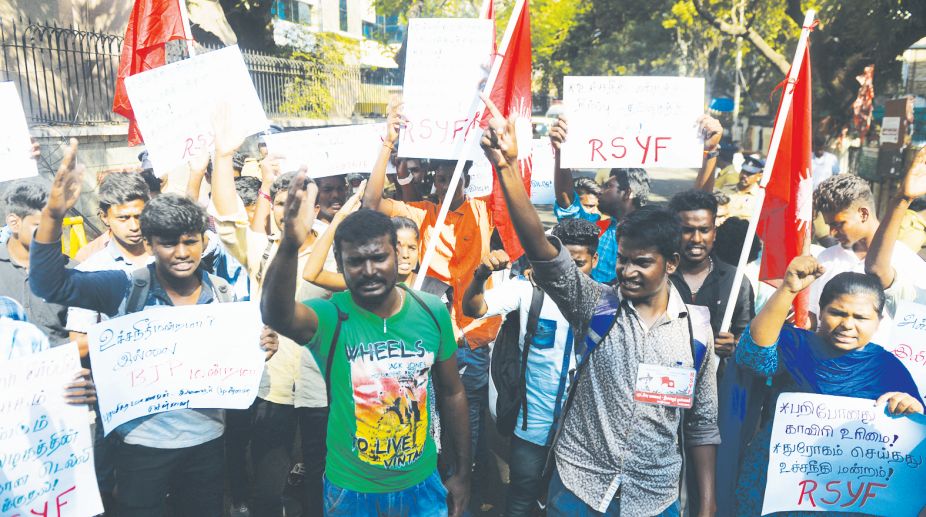The Supreme Court on Friday reduced Tamil Nadu’s share of Cauvery water and increased Karnataka’s share saying that given the global status of the state capital city of Bengaluru it needs more water.
The apex court directed the Karnataka government to release 177.25 tmcft of Cauvery water to Tamil Nadu from its inter-state Biligundlu dam.
Advertisement
The Supreme Court raised the 270 tmcft share of Cauvery water for Karnataka by 14.75 tmcft and reduced Tamil Nadu’s share while compensating it by allowing extraction of 10 tmcft groundwater from the river basin, saying the issue of drinking water has to be placed on a “higher pedestal”.
By virtue of today’s verdict, Tamil Nadu, Karnataka, Kerala and Union Territory Puducherry would be annually entitled to 404.25 tmcft, 284.75 tmcft, 30 tmcft and 7 tmcft of Cauvery water respectively out of a total of 740 tmcft.
Besides this, 10 thousand million cubic feet (tmcft) of water would be used for environment protection and 4 tmcft would be kept for inevitable escapages into the sea.
The Cauvery Water Dispute Tribunal (CWDT) award of 5 February 2007, which was notified in the gazette on 19 February 2013, had allocated 419 tmcft , 270 tmcft, 30 tmcft and 7 tmcft of water yearly to Tamil Nadu, Karnataka, Kerala and Puducherry respectively. The top court concurred with the 2007 findings of the CWDT with regard to the water share of 30 tmcft to Kerala and 7 tmcft to Puducherry.
A three-judge bench headed by Chief Justice Dipak Misra justified the increase in Karnataka’s share by taking note of the principle on drinking water and the “global status” acquired by the state capital and the IT city of Bengaluru.
”Drinking water requirement of the overall population of all the states has to be placed on a higher pedestal as we treat it as a hierarchically fundamental principle of equitable distribution,” the bench said.
“The tribunal had drastically reduced the share of Karnataka towards domestic and industrial purpose for the reason being that only 1/3rd of the city of Bengaluru falls within the river basin and also on the presumption that 50 per cent of the drinking water requirement would be met from ground water supply.
“The said view taken by the tribunal ignores the basic principle pertaining to drinking water and is, thus unsustainable. Keeping in mind the global status that the city has attained, an addition of 4.75 tmc is awarded to Karnataka,” the bench, also comprising Justices Amitava Roy and A M Khanwilkar, said.
Out of the enhanced 14.75 tmcft of water in Karnataka’s share, 10 tmcft has been increased on account of availability of ground water in Tamil Nadu.











